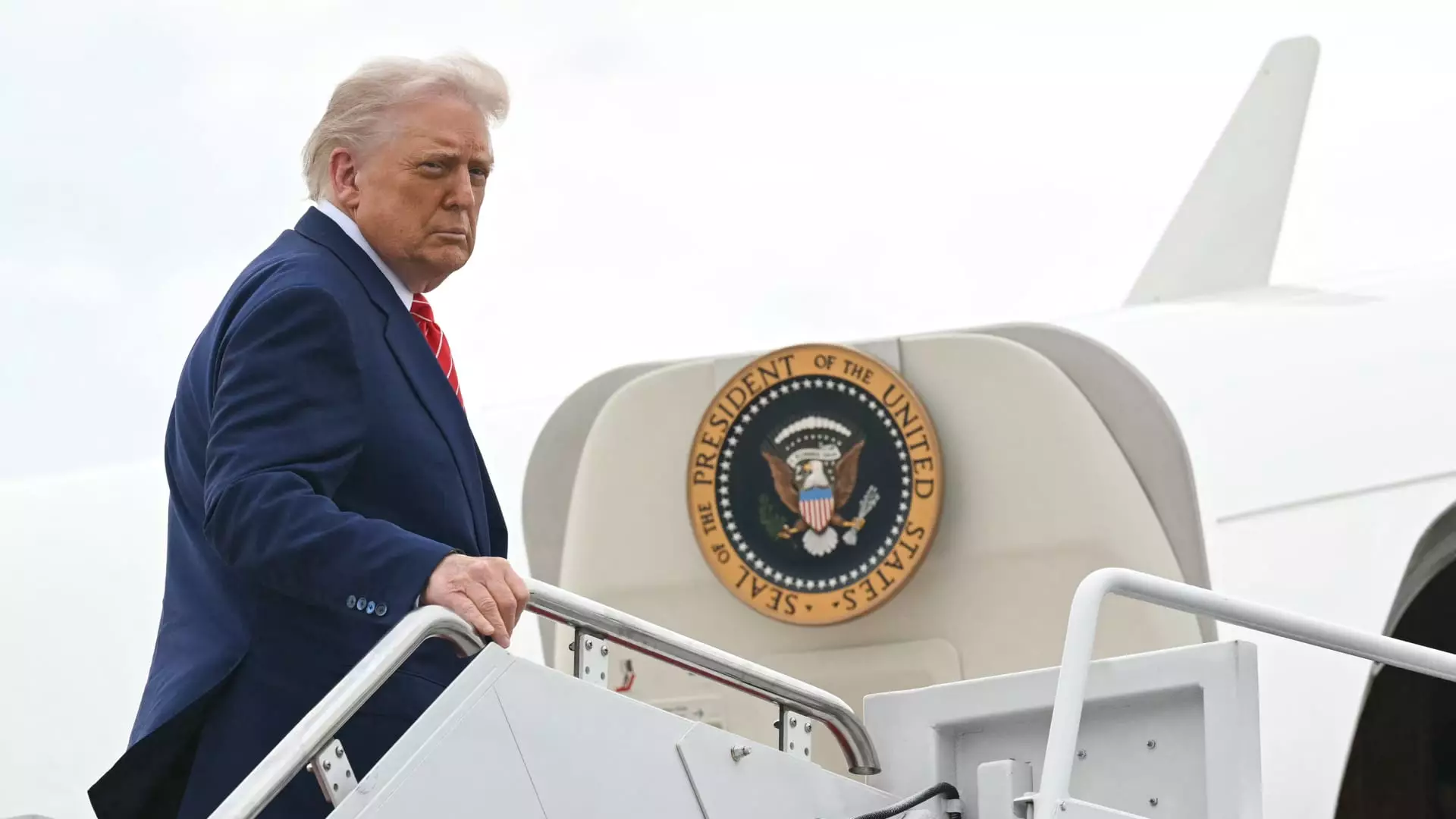The ongoing saga surrounding the imposition of tariffs under Donald Trump’s administration presents a stark example of how economic policy can become ensnared in political and legal battles. Despite the confidence exhibited by Trump’s economic advisers, claiming that tariffs “are not going away,” the reality is far murkier than such rhetoric suggests. The recent federal court ruling, which declared Trump’s tariffs to be outside the bounds of his executive authority under the International Emergency Economic Powers Act (IEEPA), raises significant questions about the future of these economic measures and the presidential overreach involved in their implementation.
Trump’s unwavering stance on tariffs has been marketed as a means to combat trade deficits and protect American workers. However, the justification of a “national emergency” highlights a disturbing tendency towards an overreliance on unilateral action. When commerce is treated as a battleground, the need for checks and balances becomes more critical than ever. The disturbing notion that a president can invoke an emergency to impose such broad duties creates a precarious precedent, which could be weaponized by future administrations irrespective of party lines. It’s not far-fetched to envision a scenario where subsequent leaders may exploit the same arguments for entirely different economic or political ends.
Confidence without Foundation
On “Fox News Sunday,” Commerce Secretary Howard Lutnick expressed unyielding confidence in the permanence of the tariffs. Yet, this optimism appears blind to the undeniable truth that the foundations of these measures are being subjected to rigorous legal scrutiny. Kevin Hassett, director of the National Economic Council, echoed this confidence but also hinted at the maze of other legal avenues available to the administration should these tariffs fall. However, what he failed to acknowledge is that resorting to backdoor tactics could further alienate allies and stoke international tensions.
While Hassett’s conviction that the conservative-majority Supreme Court would side with the administration may soothe some nerves, it disregards the unpredictable nature of judicial decision-making. Historically, courts have been wary of overreaching executive power, and the implications of a ruling against the tariffs could reverberate far beyond this singular issue. It’s essential to question whether blind loyalty to a faltering policy is responsible governance or merely an act of political desperation.
The Economic Reality Check
Trump’s tariffs have thrust the economy into a volatile state, impacting not only trade relations but also the very fabric of American industry. The administration’s narrative posits a simplistic dichotomy: tariffs as a fortress to protect American jobs from foreign competition versus the specter of economic ruin. However, the reality is more nuanced. Economic systems thrive on interdependence, and erecting barriers distorts both markets and relationships. Disruption to supply chains, inflationary pressures, and escalating trade wars all threaten the very workers Trump claims to be safeguarding.
The rhetoric surrounding a potential court defeat, with Trump proclaiming it would “allow other Countries to hold our Nation hostage,” reveals a profound misunderstanding of how trade is structured in a global economy. This framing simplifies a complex situation into a battle of absolutes that fails to account for diplomacy, cooperation, and the advantages of building alliances rather than adversarial stances. The administration’s failure to engage in substantive negotiations and preference for tariff threats has resulted in a self-imposed isolation that offers no long-term solution to the problems posed by trade deficits.
Strategic Blindness and Public Sentiment
What remains alarming is the apparent disconnection between the administration’s narrative and the sentiments of average American workers and consumers. While the promises of protectionist policies may resonate on the surface, the tangible impacts of these tariffs have begun to erode public support. Rising costs reflected in everyday purchases, from groceries to electronics, weave a narrative of hardship that clashes with the lofty promises made by the administration.
In this climate of economic uncertainty, the reliance on tariffs as an all-encompassing solution speaks to a broader failure to engage with the complexities of modern trade. Issues such as technological shifts, labor dynamics, and global market trends require nuanced discussions rather than the blunt tool of tariffs. The potential of a legal defeat could serve as a catalyst for a much-needed reevaluation of trade strategies, compelling lawmakers and policymakers to construct a more robust, inclusive approach to economic relations.
The real danger lies not merely in the tariffs themselves but in the mindset that deludes us into thinking that isolationism can shield an economy from the realities of the interconnected world in which we live. Envisioning a future where America thrives necessitates a collaborative approach to global challenges, not a retreat into protectionist isolation.

Leave a Reply